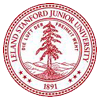Sharing Economy
Recent technological advances have significantly altered the landscape of modern life. It is now easier to meet strangers or to acquire deep knowledge of obscure subjects, which were previously the exclusive domain of experts. Soon, automated vehicles will deliver us from place to place along with the things we buy. Yet, the biggest revolution may be unfolding before our eyes without receiving much notice: More and more people are now part of the "gig economy." This is the informal definition for people who make a living by sharing and selling services and goods on platforms like Airbnb, Uber, Lyft, Task Rabbit, and so forth.
A key aspect of the gig economy is its reliance on trust. The role of trust in the gig economy has been segmented into two parts: interpersonal trust, as in the trust that a host places on a guest in an Airbnb exchange (and vice versa); and trust in the platform, as in the trust that all users have in a given website (its rating system, procedures for screening out malicious users, general fairness, and so on). While much has been written on the topic of trust in online communities, my research takes a different perspective and explores the topic of how platform design products to facilitate both aspects of trust (adapted from Parigi and Ma, The Gig Economy, XRDS 2016:2)




